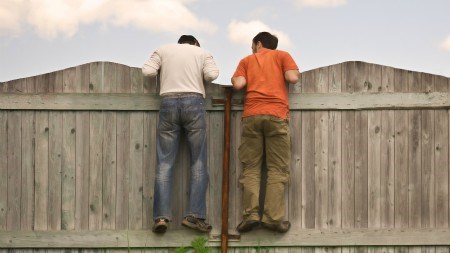Although servitudes come in many forms, we'll limit this discussion to the right-of-way variety.
These come about for two general reasons:
Topography doesn't always lend itself to dividing an area up into erven, each with street frontage;
Township developers want to maximise profits and therefore create 'dead' erven without street frontage.
In facilitating access to these properties one of the neighbouring owners has to concede the use of a narrow strip of land along a boundary so the 'Island' erf can be accessed. Essentially, this restricts some of the rights of ordinary ownership for the benefit of a neighbour.
By law and nature, all servitudes have to be registered in the title deeds of the property conceding the right-of-way. Despite this, not every eventuality can be catered for or foreseen and this is generally when problems start to arise.
To avoid confusion we will refer to the piece of land under discussion as no-man's land, the person conceding the servitude as the owner and the person utilising the servitude as the user.
In a recent case heard in the Durban High Court, the owner had erected a wall and installed an electronic gate in order to stop the user from accessing his property via this route. The user did have an alternative access route, but preferred to use no-man's land because it was less steep. The problems, however, had been going on long before the wall and gate were erected and the user was told to get off the owner's property repeatedly. Eventually the situation became so unpleasant that the user opted to use the steep access under protest and the situation would possibly have endured had the user not put his home on the market. It quickly became apparent that the steep access route was putting people off buying the home and the user then took the matter to court.
The owner's defence rested on the fact that the user no longer utilised the servitude. However, the judge found that the owner's behaviour led to the user being bullied into not exercising his right over the servitude. The owner had been asked repeatedly to remove the gate, which he had not done. The judge found that the user had not given up his right to the servitude, despite the fact that he was not using it.
Generally speaking, an owner cannot meddle with a servitude - that right was essentially passed on to the user at the time when the servitude was registered in the Deeds Office. The user has a legal right to use that portion of land regardless of how many times the property changes hands and attempting to take away that right can lead to embarrassment in court.



